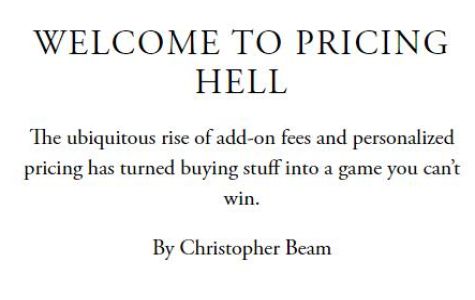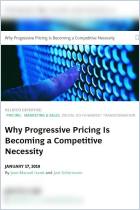
Article
Welcome To Pricing Hell
The ubiquitous rise of add-on fees and personalized pricing has turned buying stuff into a game you can’t win.
The Atlantic,
2024
Read or listen offline
Amazon Kindle
auto-generated audio
1×
Log in to listen to the audio summary.
auto-generated audio
Recommendation
Imagine trying to book a plane to go to an important event, such as a funeral, only to see that airline prices have skyrocketed. As companies gain more access to your data, you may find they charge you more when an algorithm determines your need for a product or service is higher. Christopher Beam, a writing fellow at The Atlantic, does an illuminating deep dive into the dynamic pricing “hell” that he sees emerging, pushing consumers, companies and economists to reflect on whether such practices are actually fair.
Summary
About the Author
Christopher Beam is a New York-based writing fellow at The Atlantic.

















Comment on this summary or Start Discussion